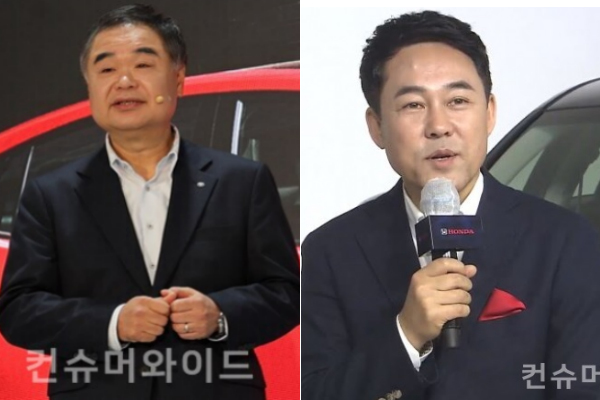
[Consumerwide - HueSoung Jun Reporter / Yohan Bok Reporter] here has been a remarkable performance of Japanese cars in 2023 in the domestic overseas car market. The sales record of Japanese cars has been astonishing, along with Yes Japan. Prior to this, there had been a rapid decrease in sales records due to the No Japan boycott. In market share, Japanese brands took over American brands. The sales record of Lexus Korea went over 10,000 units after four years since 2019. Toyota Korea also recovered after the No Japan boycott. However, Honda Korea didn't seem to be getting through, which reminded me of Nissan.
Referring to Carisyoudatalab, the Ministry of Land, Transportation, and Infrastructure, and the Korea Automobile Importers and Exporters Association, the market share in imported car sales according to nations was Europe 230,972 units (85.2%), Japan 23,441 units (8.6%), and the US 16,621 units (6.1%). The major players in this game were Lexus and Toyota. Over 10 thousand Lexus units were sold between 2016 (10594) and 2019. However, the No Japan Boycott turned down the sales record of Lexus since then until it rebounced last year by recording 78.6% of the growth rate from a year prior. Due to this high performance, the sales rank of Lexus was upgraded by three levels last year, from 9th (2022) to 6th (2023). (or from 5th to 4th, referring to the Korea Automobile Importers and Exporters Association) The sales performance of Toyota was outstanding as well in 2023, with 8500 units sold, which is a 35.6% (2230 units more) increase from a year prior and ranking 10th. (KAIEA 9th)
There has been a multi-pathway strategy for the sales performance of Lexus and Toyota. The multi-pathway is a strategy of Toyota Korea, which focuses on selling various types of automated cars according to the characteristics of each market. The core of the multi-pathway is in distributing environmental cars concerning various needs of customers and energy conditions in each area globally.
Toyota Korea has released five new automised cars customised to each classification, which are Rav4 Plugin Hybrid (PHEV), Crown Crossover HEV, Alphard HEV, Highlander HEV, and Prius HEV‧PHEV, in Korea this year, and it worked in the Korean market, where there had been rapid growth and demand for hybrid powertrains. Lexus released pure electric cars last year for the first time in Korea, along with a variety of hybrid and plug-in hybrid cars. Toyota Korea plans to increase its market share with the same strategy this year.
On the other hand, Honda is still in the midst of a low sales record for five types of new cars last year, regardless of their effort to change lineups to new cars due to the Yes Japan trend. The sales record of Honda was 1,385 in 2023, which is only a half unit (55.9%) from a year prior (3142 units). And, in overall imported car competition, Honda went down to 17th in 2023 from 13th in 2022. (KAIEA 16th). This shows that releasing a new car wasn't working. Thus, some predict Honda might go after Nissan, which shut down at the end of 2020 due to a low sales record in the Korean market. Weak lineups and a high price rise for Honda might have resulted in the record today. Six types of Honda were on sale in the domestic market, which gave more choice than before but not as much for recovery. Besides, irrational pricing was added to it in the process of releasing new cars. The new model is at most 9 million won more expensive than the previous model. 2024 seems like a year of enhancement for Lexus and Toyota, but a year of survival for Honda.
- [Consumption Value: In-Depth Report in January] Car② BMW got its crown back after 8 years... The Chinese trend was strong in overseas commercial car competition in Korea
- [Consumption Value: In-Depth Report in January] Car① It's been a year of environmental consumption in 2023. The sales record of hybrid cars exceeded that of diesel cars

